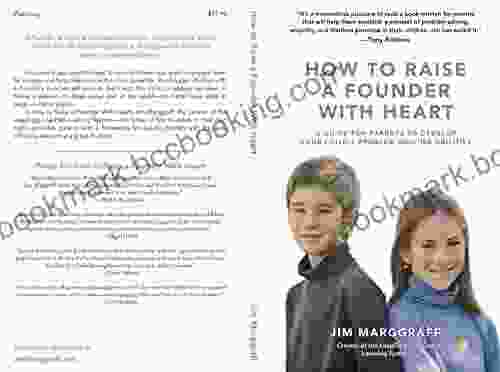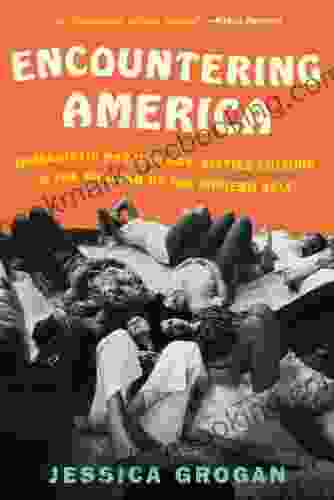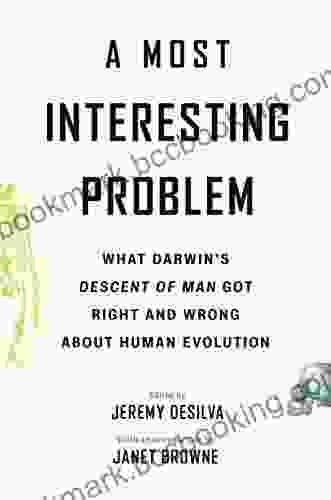Sixties Psychology: Counterculture and the Movement That Shaped the Modern Self

The 1960s was a time of great social and political upheaval. The civil rights movement, the Vietnam War, and the rise of the counterculture all challenged traditional values and institutions. Psychology, too, was not immune to the spirit of change.
4.2 out of 5
| Language | : | English |
| File size | : | 1594 KB |
| Text-to-Speech | : | Enabled |
| Screen Reader | : | Supported |
| Enhanced typesetting | : | Enabled |
| Word Wise | : | Enabled |
| Print length | : | 435 pages |
In the years leading up to the 1960s, psychology had been dominated by behaviorism and psychoanalysis. Behaviorism, with its focus on observable behavior, had little to say about the inner life of the mind. Psychoanalysis, on the other hand, while more attuned to the unconscious, was often seen as too deterministic and pessimistic.
The counterculture movement, with its emphasis on personal liberation and social change, offered a new vision of psychology. Counterculture psychologists argued that traditional psychology was too focused on pathology and that it ignored the potential for human growth and transformation.
One of the most influential figures in Sixties psychology was Abraham Maslow. Maslow developed a theory of human motivation that he called the "hierarchy of needs." According to Maslow, human beings have a hierarchy of needs, starting with basic physiological needs like food and shelter, and moving up to higher-level needs like love, belonging, and self-actualization.
Maslow's theory was revolutionary because it suggested that human beings are not simply driven by instincts or unconscious desires. Rather, we have the potential to grow and change, and to achieve our full potential.
Another important figure in Sixties psychology was Carl Rogers. Rogers developed a theory of personality that he called "client-centered therapy." Rogers believed that people are fundamentally good and that they have the potential to change and grow. The therapist's role, according to Rogers, is to provide a supportive and non-judgmental environment in which the client can explore their own thoughts and feelings.
Rogers' theory was influential in the development of humanistic psychology, which emphasizes the importance of individual experience and personal growth. Humanistic psychologists believe that people are not simply the sum of their past experiences, but that they have the power to create their own future.
The Sixties counterculture movement had a profound impact on psychology. It challenged traditional notions of mental health and well-being, and it opened up new possibilities for human growth and transformation. The legacy of Sixties psychology can still be seen today in the popularity of humanistic and transpersonal psychology, and in the emphasis on personal growth and self-actualization.
The Impact of Sixties Psychology on the Modern Self
The Sixties counterculture movement had a lasting impact on the modern self. It challenged traditional notions of identity, consciousness, and the pursuit of happiness, and it led to the development of new psychological theories and practices.
One of the most significant ways that Sixties psychology shaped the modern self is by challenging traditional notions of identity. Prior to the 1960s, identity was often seen as something fixed and unchanging. However, Sixties psychologists argued that identity is fluid and ever-changing. They believed that people are not simply the sum of their past experiences, but that they have the power to create their own future.
This new understanding of identity had a profound impact on the way people thought about themselves and their place in the world. It led to a greater sense of freedom and possibility, and it encouraged people to explore their own unique potential.
Another way that Sixties psychology shaped the modern self is by challenging traditional notions of consciousness. Prior to the 1960s, consciousness was often seen as a purely rational and objective phenomenon. However, Sixties psychologists argued that consciousness is also subjective and experiential. They believed that people's experiences of the world are shaped by their own unique perspectives and beliefs.
This new understanding of consciousness led to a greater appreciation for the importance of intuition and creativity. It also led to the development of new psychological practices, such as meditation and mindfulness, that are designed to help people explore their own inner worlds.
Finally, Sixties psychology also challenged traditional notions of the pursuit of happiness. Prior to the 1960s, happiness was often seen as a goal that could be achieved through external means, such as wealth or status. However, Sixties psychologists argued that happiness is an inner state that can be cultivated through personal growth and self-actualization.
This new understanding of happiness led to a greater emphasis on personal fulfillment and well-being. It also led to the development of new psychological theories and practices that are designed to help people live more meaningful and fulfilling lives.
The Sixties counterculture movement had a profound impact on psychology. It challenged traditional notions of mental health and well-being, and it opened up new possibilities for human growth and transformation. The legacy of Sixties psychology can still be seen today in the popularity of humanistic and transpersonal psychology, and in the emphasis on personal growth and self-actualization.
4.2 out of 5
| Language | : | English |
| File size | : | 1594 KB |
| Text-to-Speech | : | Enabled |
| Screen Reader | : | Supported |
| Enhanced typesetting | : | Enabled |
| Word Wise | : | Enabled |
| Print length | : | 435 pages |
Do you want to contribute by writing guest posts on this blog?
Please contact us and send us a resume of previous articles that you have written.
 Book
Book Novel
Novel Page
Page Chapter
Chapter Text
Text Story
Story Genre
Genre Reader
Reader Library
Library Paperback
Paperback E-book
E-book Magazine
Magazine Newspaper
Newspaper Paragraph
Paragraph Sentence
Sentence Bookmark
Bookmark Shelf
Shelf Glossary
Glossary Bibliography
Bibliography Foreword
Foreword Preface
Preface Synopsis
Synopsis Annotation
Annotation Footnote
Footnote Manuscript
Manuscript Scroll
Scroll Codex
Codex Tome
Tome Bestseller
Bestseller Classics
Classics Library card
Library card Narrative
Narrative Biography
Biography Autobiography
Autobiography Memoir
Memoir Reference
Reference Encyclopedia
Encyclopedia Jennifer Senior
Jennifer Senior Jennifer R Lee
Jennifer R Lee Jessie Hewitson
Jessie Hewitson Jesse Norman
Jesse Norman Sarah Jakes Roberts
Sarah Jakes Roberts Jenny Jones
Jenny Jones Sharan B Merriam
Sharan B Merriam Jessica Battilana
Jessica Battilana Jessica Shorstein
Jessica Shorstein Michael Allison
Michael Allison Kristin Valkenhaus
Kristin Valkenhaus Kimberly V Garner
Kimberly V Garner Jim Endersby
Jim Endersby Jeffery H Haskell
Jeffery H Haskell Jian Ping
Jian Ping Walter L Baker
Walter L Baker We Fairbairn
We Fairbairn Jim Allen
Jim Allen Linda Keteyian
Linda Keteyian Mark Doty
Mark Doty
Light bulbAdvertise smarter! Our strategic ad space ensures maximum exposure. Reserve your spot today!
 Rodney ParkerFollow ·2.4k
Rodney ParkerFollow ·2.4k Jonathan HayesFollow ·10.4k
Jonathan HayesFollow ·10.4k Rob FosterFollow ·11k
Rob FosterFollow ·11k David BaldacciFollow ·18.1k
David BaldacciFollow ·18.1k Herbert CoxFollow ·17.7k
Herbert CoxFollow ·17.7k Daniel KnightFollow ·13.6k
Daniel KnightFollow ·13.6k Forrest BlairFollow ·5.1k
Forrest BlairFollow ·5.1k Owen SimmonsFollow ·5k
Owen SimmonsFollow ·5k

 Patrick Rothfuss
Patrick RothfussGuide for Parents: Unlocking Your Child's Problem-Solving...
As a parent, you...

 Ignacio Hayes
Ignacio HayesThe Good Girls of Al Noor: A Gripping Tale of Hope and...
On March 15, 2019, a...

 Lee Simmons
Lee Simmons50 Games and Activities for All the Turkeys at Your...
Thanksgiving is a time for family, friends,...

 Sean Turner
Sean TurnerRewiring the World: From Edison to Google - The...
A Captivating...
4.2 out of 5
| Language | : | English |
| File size | : | 1594 KB |
| Text-to-Speech | : | Enabled |
| Screen Reader | : | Supported |
| Enhanced typesetting | : | Enabled |
| Word Wise | : | Enabled |
| Print length | : | 435 pages |















